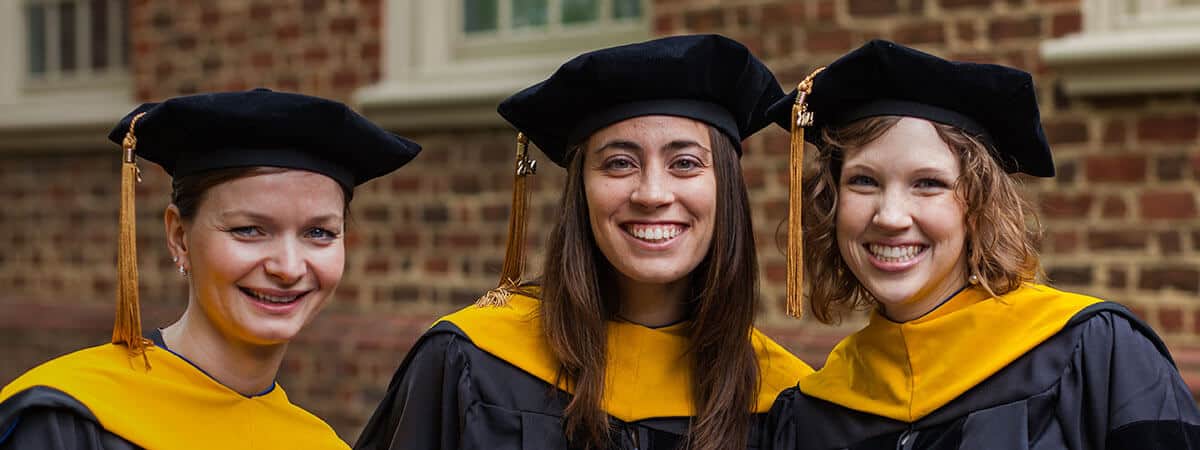
About the School of Psychology & Counseling
Students in Regent University’s School of Psychology & Counseling come from diverse backgrounds, nationalities and denominational traditions, but what they all share is a heart for people and a deep desire to make the world a better place. Our programs challenge students to think critically and purposefully about their faith and how it will relate to their professional identity. Our students also acquire clinical skills in a safe place with ample supervision and guidance. This provides confidence to integrate science and faith — elements that we believe complement rather than oppose one another.
Today, in mainstream and faith-based settings across the country, you’ll find Regent-educated counselors, clinical practitioners, educators, key decision makers and respected voices in research and scholarship. Likewise, when you graduate from Regent, you can hold the knowledge and skills you need for professional and personal success.
CHRISTIAN INTEGRATION
The psychology and counseling programs at Regent embrace a distinctive that shapes everything we teach and do: The integration of the Christian faith within your profession. Through our programs, you can deepen your understanding of both the science of human nature and the spiritual truths that give it meaning. Our curriculum balances timeless Judeo-Christian principles with the highest standards of contemporary theory and practice.
We believe God exists and He is the source of all truth. We believe He is a just, compassionate Creator and Redeemer who calls us into a relationship with Himself and others. We recognize that each person, whether client or counselor, is in a distinctive place in his or her spiritual life. Therefore, while we teach courses from a Christian integrative perspective, students are encouraged to consider, in each course, how their own spirituality can be applied to the counseling setting and to their own personal growth.
Because of our core values, we are committed to developing in each individual student the highest level of competence in knowledge and skills. Our values also establish the framework within which we educate and train students in their ethical responsibility to respect each client’s spirituality level, always mindful not to impart one’s own values and beliefs on others. Because of the multifaceted training available within the context of the model, graduates of our programs are able to function as effective and ethical counseling professionals in both secular and Christian settings.
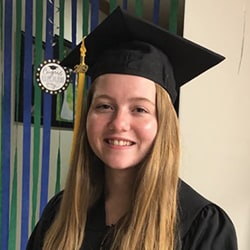
Former Resident Assistant, Regent University
I visited Regent during my brother’s first semester as a graduate student, toured the gorgeous campus, and realized I was called to Regent too.
Social Media Specialist
We are active-duty military, so finding an accredited, online university was important. With Regent, the transfer process was smooth, the curriculum is engaging, and I get to learn from professors who love God and teach with passion and expertise.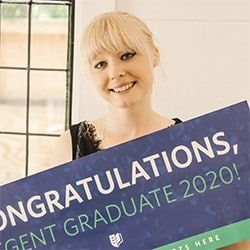
Co-Founder, Willow House Media
Two degrees down, one to go! So happy to have completed my master’s in psychology!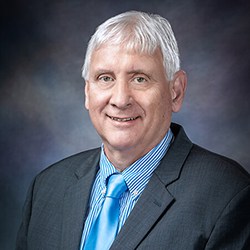
Mayor, City of Virginia Beach
When you’re leading the largest city in the Commonwealth, you realize quickly, you can’t do it by yourself … so I pray. Regent was a vital factor in my spiritual growth and my professional growth.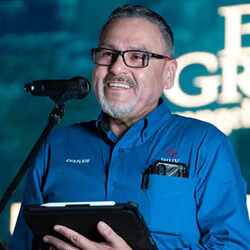
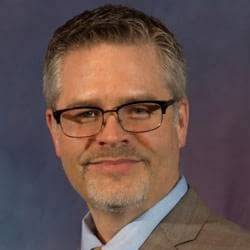
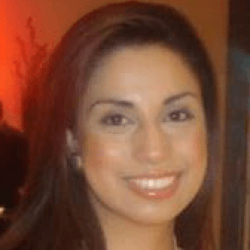
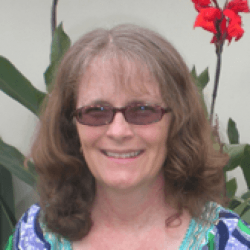
TESOL
The adult track of the TESOL program in Regent's School of Education prepared me to work with students on a beginning English level as well as students on the postgraduate level.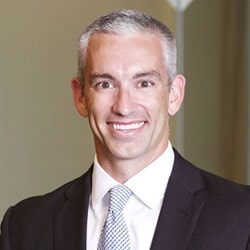

President and General Manager at WVEC-TV ABC 13
Unlike other schools I considered, Regent lets you customize projects around real-life work issues. The professors challenge you and genuinely want you to succeed.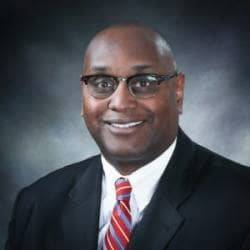
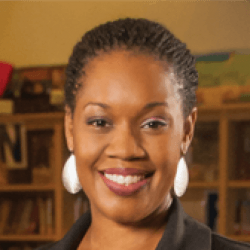
Educational Leadership
Just four years after receiving my degree from Regent, I had the honor of being named one of the nation's top educators. My Regent professors honed my focus on leadership, quality and innovation in education, which I use in my classroom every day.
Organization Development Consultant, Capital Region Health, University of Maryland Medical System
I have had an extensive career of over 25 years in healthcare. This opportunity is a result of God’s favor and my recently obtained degree. I am very excited and grateful for the doors already opening as a result of my time at Regent.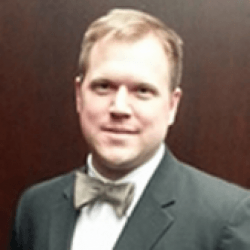
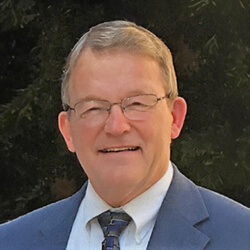
Executive Mentor
It has been a wonderful privilege to have a small investment in the life of a student in the DSL program. Being involved in the mentoring program has been a way for me to express my gratitude for the investment Regent made in my life. I have benefitted so much from the mentoring program; the resources from the Executive Mentor Program have been invaluable for me in the college where I serve as Executive VP.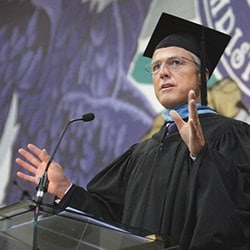
Head of Cincinnati Hills Christian Academy
Regent's Christian education program taught me best practices in education, and the faculty inspired and challenged me to reach my full potential.
Master’s Student in Biomedical Engineering, New York University
I want to be a biomedical engineer and use it for God's glory around the world. Not only do I want to help physically, but I would also want to help spiritually and emotionally. At Regent, I grew so much mentally, spiritually and emotionally in a way I want to share with others.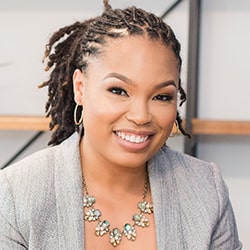
Digital Media
My Regent learning experience helped inform my perspective on clients, products, the work environment and competitors, which heavily influences the work that I do.
Video Production Assistant, wayahead
I graduated from Regent University with a B.A. in Animation. My journey was joyous and I’m glad I took the route I did to be able to shine with my abilities and meet such good people.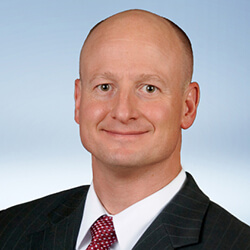
Mentee
My mentor and I are mutually keeping each other lifted up in prayer and with encouragement in the midst of life's challenges. This mentorship connection has delivered extra focus for me by giving me a living example of what I desire to be engaged in upon graduating from Regent. Since I will be over 55 when I finish, my executive mentor demonstrates how there are decades of fruitfulness ahead of me and that completing this program is worth the rewards and open doors in the future.- M.A. in Clinical Mental Health Counseling (60 hours)
- M.A. in Human Services (30 Hours)
- M.A. in Marriage, Couple & Family Counseling (60 hours)
- M.A. in Pastoral Counseling (30 Hours)
- M.A. in School Counseling (60 hours)
- M.S. in Psychology (39 Hours)
- Ph.D. in Counseling & Psychological Studies (51 Hours)
- Ph.D. in Counselor Education & Supervision (66 Hours)
- Psy.D. in Clinical Psychology (124 Hours)
Yes, the Council for Accreditation of Counseling and Related Educational Programs (CACREP), a specialized accrediting body recognized by the Council for Higher Education Accreditation (CHEA), has accredited the following programs in the School of Psychology & Counseling: M.A. in Clinical Mental Health Counseling, M.A. in School Counseling, M.A. in Marriage, Couple & Family Counseling and Ph.D. in Counselor Education & Supervision. The Psy.D. in Clinical Psychology is accredited by the Commission on Accreditation (CoA) of the American Psychological Association (APA). Contact the APA at Office of Program Consultation and Accreditation, 750 First Street, NE, Washington, D.C. 20002-4242, or call 202.336.5979.
In addition, Regent University is accredited by the Southern Association of Colleges and Schools Commission on Colleges to award associate, baccalaureate, masters, and doctorate degrees. Contact the Southern Association of Colleges and Schools Commission on Colleges at 1866 Southern Lane, Decatur, Georgia 30033-4097 or call 404.679.4500 for questions about the accreditation of Regent University.
- Virginia Beach, Virginia
- Online
(All estimates based on full-time enrollment.)
| M.A. in Counseling (Clinical Mental Health; School; Marriage, Couple & Family) | 2-3 years |
| M.A. in Human Services | 12-18 months |
| M.A. in Pastoral Counseling | 12-18 months |
| M.S. in Psychology | 18 months – 2 years |
| Doctor of Psychology (Psy.D.) | 5 Years |
| Ph.D. in Counseling & Psychological Studies | 3-½ years (depending on length of dissertation completion) |
| Ph.D. in Counselor Education & Supervision | 3-½ to 4 years (depending on length of dissertation completion) |
Yes, amounts range from modest allowances for books to full-tuition scholarships. Teaching assistantships are also available on a limited, competitive basis for the Psy.D. program beginning in the second year of the program. Over 85 percent of our student body receives financial aid. To learn more about financial aid opportunities, visit our Admissions & Aid page.
Yes, online students in our master’s counseling programs are required to participate in two week-long residencies from 8 a.m.-5 p.m. (Eastern Time). Residencies provide networking and mentoring opportunities for students; and facilitate discussions with faculty concerning relevant issues, course matriculation, licensure issues and state/national exams.
During residency, students will begin a course that will be completed during the remainder of the fall semester. First-year students will receive an orientation to Regent and participate in sessions on graduate level writing and online learning technology. The School of Psychology & Counseling usually provides lunch and two breaks daily when courses are in session.
Students should consider the following residency costs: transportation, lodging, meals and textbooks purchased prior to residency. We discourage students from bringing their families during residency as the coursework is intensive and requires a considerable amount of study and preparation time, leaving no time for extracurricular activities.
Waiving of residency requirements will not be considered.
Please contact the Business Office and/or Office of Advising.
There are a number of scholarship opportunities available to our students. Review our list of school-specific scholarships on the SPC Admissions & Aid page. In addition, Regent offers several donor funded scholarships. You can read more about these awards here.
School-Specific Scholarships:
- (Spring) January 1
- (Summer) May 1
- (Fall) July 31
University Endowed Scholarships:
- March 1
FAFSA Deadlines:
- FAFSA on the web, Renewal FAFSA on the web and applications must be submitted by midnight Central Daylight Time, June 30.
Corrections on the web forms must be submitted by midnight Central Daylight Time, September 15.
Yes, the form is the same and is submitted exactly as it was to your undergraduate institution. If you still have your PIN, you may use it to update your information rather than completing a brand new application.
The school code for Regent is: 030913
Loan eligibility is evaluated by our Student Financial Aid office upon receipt of your Student Aid Report, which is automatically sent to the university soon after your FAFSA is submitted. Contact your financial aid counselor to receive more specific information.
If you have loans and/or scholarships, you may lose some of your funds if this drops you below the full-time enrollment requirement. If it drops you below four credit hours, you will lose all of your financial benefits (exceptions are CMHC and CES). If this is the case, you will be responsible for immediate repayment of the difference.
If you have questions about school-specific scholarships, please contact Katie Kerley, Assistant Director of Admissions, at 800.681.5906 or kathpec@regent.edu.
If you have questions about loans, FAFSA or university endowed scholarships, please contact the Office of Advising at 757.352.4385.
Regent students enjoy a uniquely supportive environment and prime location in Virginia Beach. Our caring community, coastal climate, and collegial academic atmosphere help students flourish personally and build lifelong friendships.
Just a short drive from our campus, the Virginia Beach waterfront stretches 25 miles from Chesapeake Bay beaches to the oceanfront resort area and the border of North Carolina. The city is part of the larger metropolitan area known as Hampton Roads. This thriving community is home to the world’s largest naval base, includes seven cities and is the second largest metropolitan area between Atlanta, Georgia and Washington, D.C.
Here, you’ll not only discover significant internship and employment opportunities, but also a wealth of attractions and activities. Enjoy the diversity of quiet parks and vibrant downtowns, as well as cultural offerings from the opera and art shows to festivals and concerts.
VISIT & EXPLORE
Norfolk Premium Outlets | 7 miles
Downtown Norfolk & Waterside District | 10 miles
Virginia Beach Oceanfront | 17 miles
Indoor Skydiving | 16 miles
Oceanbreeze Water Park | 17 miles
The Adventure Park | 18 miles
Busch Gardens | 45 miles
Colonial Williamsburg | 48 miles
N.C. Outer Banks | 75 miles
Richmond, VA | 98 miles
Shenandoah National Park | 190 miles
Washington, D.C. | 200 miles
Philadelphia, PA | 274 miles
New York, NY | 360 miles
The Counselor Preparation Comprehensive Examination is administered by the National Board for Certified Counselors. It is a required exam for the School of Psychology & Counseling and must be passed in order to receive a diploma.
There is no official study guide for the Exit exam. You can use the NCE study guides as a good resource.
Practice Tests:
Fun Flashcards:
Other Resources
A Professional Orientation to Counseling by Nicholas A. Vacc, Larry C. Loesch (US +1 8006347064 Call or https://www.routledge.com/)
Encyclopedia of Counseling: Master Review and Tutorial by Howard, Ed.D. Rosenthal (Brunner-Routledge; 2nd edition ) (US +1 8006347064 Call or https://www.routledge.com/)
Review Questions for NBCC and state counselor examination, 2nd edition (5 audio cassette tapes and booklet; (US+1 8006347064 Call or https://www.routledge.com/)
Vital information for NBCC and State Counselor Examination, 2nd edition (9 audio cassettes and booklet; (US+1 8006347064 Call or https://www.routledge.com/)
The Study Course for the National Counselor Examination for Licensing and Certification (NCE®) (see https://www.cce-global.org/). This is an adapted version of A Professional Orientation to Counseling by Nicholas A. Vacc, Ed.D., NCC and Larry C. Loesch, Ph.D., NCC.
The following eight major areas are tested on both the NCE and the Exit Exam: Human Growth and Development; Helping Relations; Social and Cultural Foundations; Group Work; Career and Lifestyle Development; Appraisal; Research and Program Evaluation; and Professional Orientation and Ethics.
The NCE is the National Counselor Exam. For complete information on this exam, look at The Credentialing Guide created by NBCC.
The NCE is offered twice a year – in April and October.
No. The NCE is an optional exam.
The Exit Exam is a required exam given by Regent to its students. You must pass this exam in order to graduate. The exams are similar in content and are offered around the same time each year. Regent typically offers the Exit exam the week before the NCE.
For students who are graduating from a CACREP accredited program: If you take and pass the NCE, once you graduate you are a Nationally Certified Counselor (NCC). Also, in many states, the NCE exam is the licensing exam. If you take and pass the NCE, once you accumulate your hours toward licensure in these states, you are then licensed – no additional exam is required. Virginia, however, does not use this exam as a licensure exam.
Visit the NBCC website for a list of the states and their licensure exams.
You can call (757.352.4252), email or stop by the Field Placement Liaison’s office in CRB 232A. There is also a lot of information on the NBCC website at www.nbcc.org or in the notebook in CRB 215.
On campus students normally take Practicum in their second semester in the program. This will be in either a Spring or Summer semester.
CMHC (online) students are scheduled to take Practicum in the Spring semester of their second year in the program.
Practicum is not offered in the Fall semester for either on campus or online students.
- Attendance at a MANDATORY Practicum & Internship Orientation Meeting (For on campus students, this will typically be held within the first two weeks of either the Fall or Spring semesters. For CMHC (online) students, this will either be held during Residency or you may be required to view a video recording of a previously held meeting.)
- Submission of all required paperwork by the posted deadline date.
- Obtain passing grades in the following courses:
- COUN/CMHC 500 – Helping Relationships
- COUN/CMHC 521 – Counseling Skills & Techniques
- COUN/CMHC 526 – Theories of Counseling
You will typically remain with the same class (faculty & students) for Practicum that you were in for Counseling Skills & Techniques.
All paperwork is located online, including the Practicum & Internship Handbook, Candidacy Checklist and all associated forms, Clinical/School Counseling Contract, and the evaluations and time logs needed once working at a practicum site.
You should be on either the school counseling or dual (community & school counseling) track to do a school practicum. Dual track students are highly encouraged to complete a school practicum (usually done in an elementary school) in order to help determine if this is the track they wish to follow.
Internship is offered each semester, so you may begin at any time once the requirements have been met. Refer to your own personal Approved Degree Plan (ADP) for details. It is important to note that school internships may only be accomplished during the Fall and Spring semesters.
- Attendance at a MANDATORY Practicum & Internship Orientation Meeting (For on campus students, this will typically be held within the first two weeks of either the Fall or Spring semesters. For CMHC (online) students, this will either be held during Residency or you may be required to view a video recording of a previously held meeting.)
- Submission of all required initial paperwork by the posted deadline.
- For all internships, you must have completed at least 30 hours of coursework, which must include:
- COUN/CMHC 500 Helping Relationships
- COUN/CMHC 521 Counseling Skills & Techniques
- COUN/CMHC 526 Theories of Counseling
- COUN/CMHC 523 Practicum & Advanced Skills
- COUN/CMHC 554 Group Counseling
- COUN/CMHC 532 Assessment Techniques in Counseling
- COUN/CMHC 516 Principles of School Counseling (school and dual track)
- COUN/CMHC 514 Counseling Children & Adolescents (school and dual track)
- COUN/CMHC 538 Psychopathology
- COUN/CMHC 562 Community Counseling/Clinical Mental Health Counseling (community and dual track)
All paperwork is located online, including the Practicum & Internship Handbook, Candidacy Checklist and all associated forms, Clinical/School Counseling Contract, and the evaluation forms and time logs needed once working at an internship site.
Practicum students can find information regarding the site search process here.
Internship students can find information regarding the site search process here.
You are NOT allowed to contact any sites without permission to do so by the Field Placement Liaison.

